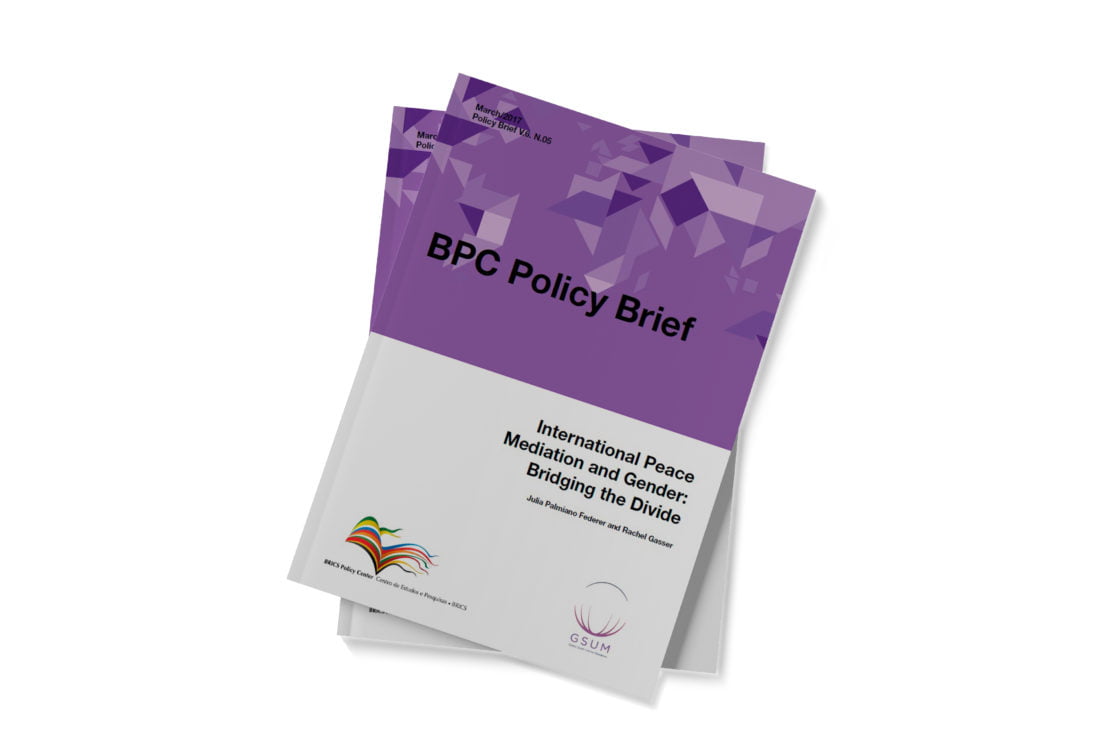
International Peace Mediation and Gender: Bridging the Divide
In this policy brief, Julia Palmiano Federer and Rachel Gasser explore the nexus between international peace mediation and gender. The publication focuses on the state of play of the Women, Peace and Security (WPS) Agenda almost two decades since the passing of United Nations Security Council Resolution 1325 in October 2000. The WPS Agenda has become a powerful and salient normative instrument in the mediation field and most comprehensively represents the nexus between gender and mediation. Since 2000, it has produced large scale efforts to address existing inequalities between women and men as agents for change in peacemaking activities. While these efforts are embraced by mediators per se, addressing these inequalities in practice has achieved mixed results and can be subject of debate between those doing mediation and those supporting mediation from a distance. This policy brief does not advocate for either a normative or pragmatic approach to integrating mediation and gender, but instead aims to illuminate key conceptual debates and practical realities in the ground in different peace processes around the world. It also illustrates the specific opportunities and challenges faced by national governments in implementing the WPS Agenda at the national policy level through National Action Plans. The policy brief concludes with suggested research agendas and questions for debate and discussion.

